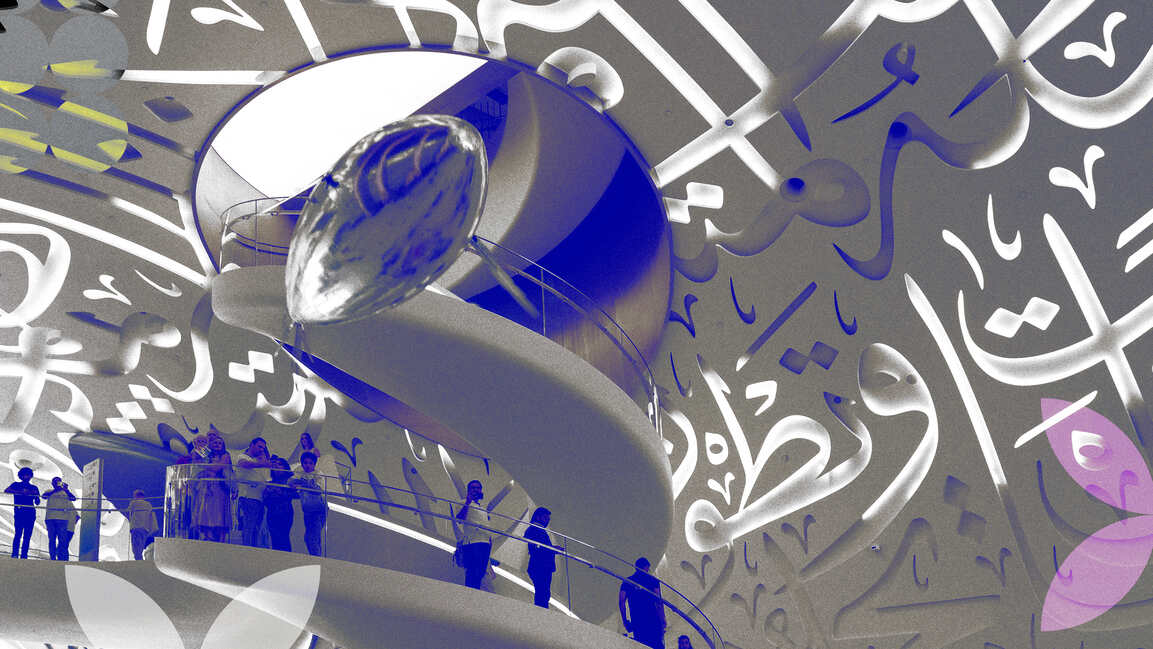- | 9:00 am
The UAE’s cultural reinvention is attracting global attention
From immersive exhibitions to heritage experiences, the UAE’s evolving cultural landscape is reshaping the country’s image and economy.

When people think of the UAE, images of glittering skyscrapers and luxury shopping often come to mind. Yet beneath its modern façade lies a rich cultural heritage shaped by a diverse population, deep-rooted history, and pioneering spirit.
This blend has cultivated a vibrant arts community — and a new wave of tourists eager to experience it.
“Cultural tourism in the UAE has seen remarkable growth over the past decade, evolving from a niche interest to a dynamic visitor economy driver,” says Shaima Rashed Al Suwaidi, CEO of the Arts, Design & Literature Sector at Dubai Culture. This organization has played a central role in this transformation.
This evolution is reflected in the country’s events scene, which has become more vibrant and engaging. “Traditional boundaries between art, entertainment, nightlife, and tourism are disappearing,” says Cosmin Ivan, CEO at Platinumlist.
Cultural tourism has shifted into a lifestyle driver, influencing everything from weekend plans and hotel bookings to urban mobility and dining trends. There’s a strong appetite to spend time and money on such experiences.
A RAPIDLY EVOLVING CULTURAL EVENT SECTOR
The UAE’s strategic location has only strengthened its cultural positioning and the remarkable speed at which cultural projects are conceptualized and realized. “We’re now seeing the completion of projects that will serve as lasting cultural landmarks across the UAE,” says Sylvain P. Gaillard, Director of Opera Gallery Dubai.
Demand for community-driven and heritage-focused events is also growing. Festivals like World Art Dubai, Quoz Arts Fest, and the Museum of the Moon have attracted new, younger audiences.
Dubai Culture has played a critical role in this transformation by developing a year-round cultural calendar. Events like the annual Sikka Art & Design Festival bring the heart of old Dubai to life with community-focused creativity.
Initiatives such as Dubai Public Art turned the city into an evolving open-air museum, and the Dubai Calligraphy Biennale in 2023 added another global layer, celebrating the beauty of visual language.
“In 2024, Dubai hosted the World Cities Culture Summit, marking the first time the event was held in the MENA region,” says Al Suwaidi, noting that this edition saw several benchmark achievements. With the 27th ICOM General Conference set for 2025, Dubai is showcasing its cultural scene and actively shaping the future of global culture.
The Louvre Abu Dhabi is a prime example of how institutions embrace immersive innovation. “The museum has transformed from a traditional exhibition space into a multi-sensory destination that blends high culture with lifestyle,” Ivan says. By hosting global acts like Peggy Gou and Black Coffee in its dramatic setting and launching innovative concepts like Masquerave, which fuses sound, architecture, and visual storytelling, institutions are shifting from simply preserving artifacts to fully engaging guests through immersive experiences.
Even electronic music events like HOLO and Adriatique blur the lines between nightlife and art. These shows create immersive journeys where audience participation is central, turning entertainment into a cultural performance where art and experience converge.
A GROWING AND DIVERSE AUDIENCE
This trend showcases how public engagement has diversified dramatically. “Visitors are no longer passive spectators—they are participants, collaborators, and content creators,” says Al Suwaidi, adding a surge in younger audiences, families, and culturally curious tourists from across the region and beyond.
Drawing on Platinumlist’s data, Ivan says. “While most users are based in the UAE, we also observe steady participation from international markets, including India, Russia, the UK, France, Lebanon, and the US.”
Moreover, cultural events have become a central part of lifestyle planning, with many people building their weekends around exhibitions, music nights, and art fairs. “In some of the events we power, particularly in Bahrain and the UAE, over 50% of ticket buyers are from another GCC country,” says Ivan. Furthermore, he notes that most art event tickets are booked five to 14 days in advance, suggesting planned, intentional attendance rather than impulse visits.
DRIVING ECONOMIC GROWTH
Cultural tourism is enhancing the UAE’s global image and fuelling its economy. Al Suwaidi says, “Cultural tourism creates direct demand for exhibitions, performances, public art, and experiences—sustaining opportunities for artists, curators, designers, and other creative professionals.”
Dubai Culture’s initiatives, such as the Dubai Cultural Grant and the International Art Fairs Grant, further support these creatives, helping them grow their careers locally and internationally.
This thriving cultural landscape also attracts several international galleries to establish a local presence. Gaillard notes that while many galleries would initially participate in local art fairs to gauge collector appetite and better understand the market, many more are concluding that establishing an outpost in the region makes commercial and cultural sense. “With the art world functioning as a close-knit ecosystem, collaboration between players often leads to outcomes greater than the sum of their parts, and the same holds in the UAE,” he says.
Beyond economics, the evolving cultural tourism sector strengthens the country’s national identity. Initiatives like the Al Shindagha Museum and heritage experiences in Al Fahidi and Hatta ensure that visitors experience culture not as a performance but as a living, evolving heritage, fostering pride among citizens and understanding among visitors.
“Every event, from heritage festivals to site-specific installations, is curated to reflect the richness of Emirati traditions while making them accessible to a global audience,” says Al Suwaidi.







































